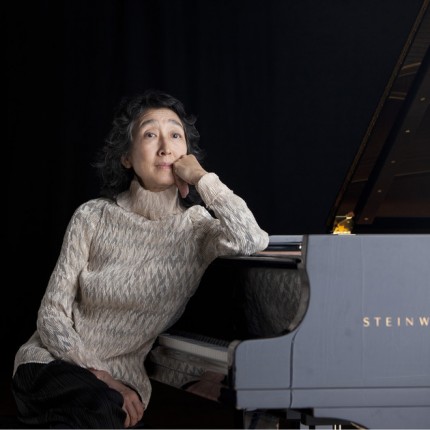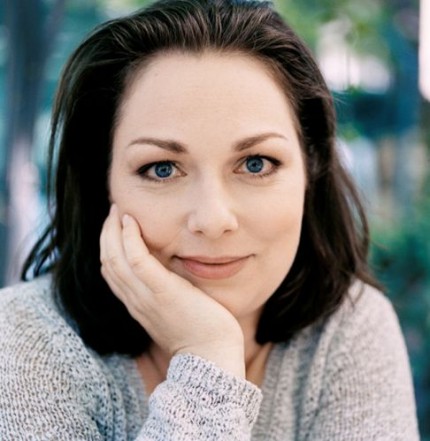Uchida and CSO offer engaging evening of Mozart and Schumann

Mitsuko Uchida’s annual Mozart programs with the Chicago Symphony Orchestra are among the finest continuing local music traditions. This time Uchida is doing triple-threat duties as lieder accompanist as well as piano soloist and conductor.
It’s encouraging that Uchida is getting around to some of the lesser-heard Mozart piano concertos rather than continuing to recycle a handful of the most popular works. Thursday night she gave us that rarest of events–a CSO Mozart premiere–with the first local performance of his Concerto No. 6.
Written at age 20, Mozart’s K.238 is small in scale but no less attractive or finely crafted than the works in the genre to come, with a rapt slow movement that sounds like a pre-echo of the celebrated Andante of No. 21, K467.
Uchida’s technique is not as airtight as it once was, but even now no pianist before the public plays Mozart better or in more idiomatic or charming style. Her effervescent touch and fluent articulation blended the galant elegance and solo vivacity in winning manner. The simple eloquence Uchida brought to the Andante conveyed apt introspective poise, and the jaunty little theme of the Rondeau finale went with superb vivacity without ever losing a Rococo refinement. Conducting from the keyboard, Uchida drew alert and well-blended support, a wayward second horn apart.
Amazingly, Mozart’s “Coronation” concerto (No. 26, K.537) hasn’t been heard downtown since Daniel Barenboim last played it in 2001. There were some isolated clinkers from Uchida here too and what sounded like a brief memory lapse in the first movement.
Yet even with the passing digital slips, this was still inspired and enjoyable Mozart. The composer’s penultimate work in the genre is grandly scored (flute and pairs of horns, trumpets, bassoons, and timpani) yet Uchida balanced the forces with great skill and invested her solo work with a lithe playfulness that felt just right. Using Wanda Landowska’s clever cadenza in the first movement was an inspired novelty, and the pianist brought a touching simplicity to the Larghetto’s delicate main theme. The rapid-fire conversational exchanges between piano and orchestra in the final movement were delightful.
The evening’s centerpiece was another rarity at CSO programs—and, more broadly, in Chicago at large–with Dorothea Röschmann as soloist in Robert Schumann’s song-cycle Frauenliebe und -leben (A Woman’s Love and Life).
Written during the fraught time when the composer waited anxiously to see if he could legally wed his beloved Clara (against her father’s wishes), the eight-song cycle relates a young woman’s complete devotion to her beloved, charting the relationship from first meeting to marriage, children and the man’s early death.
Schumann’s cycle has fallen out of favor in recent decades—in no small part due to criticism from the PC thought police who seem to equate a woman’s intense love for a man as at best inherently demeaning and at worst something akin to endorsing sharia law. Ridiculous, of course, and Schumann’s cycle remains among his most inspired and loveliest creations.
Röschmann’s voice has darkened and thinned out a bit since her Lyric Opera debut two decades ago as a radiant Pamina in Magic Flute. Her voice is attractive if somewhat unvaried in tonal coloring and some of the early songs were a bit generalized in expression.
The German soprano hit her stride as the cycle unfolded. Röschmann was ardent and impassioned in”Helft mir, ihr Schwestern” and charted the capricious shifting moods of “Süßer Freund, du blickest mich verwundert an” with skill and empathy. The final setting, “Nun hast du mir den ersten Schmerz getan” was deeply felt and heart-breaking.
Uchida was a superb accompanist in the often-independent piano part, attentive to Röschmann’s legato and bringing a sense of inevitability to the postlude’s quotation of the first song’s theme. It’s too bad the spell cast by singer and pianist was broken by a few cretinous audience members, whose unmuffled coughs, dropped program books and assorted noises detracted from the cycle’s hushed coda.
An encore of Schubert’s “Lied der Mignon Aus ‘Wilhelm Meister’” continued the same vein of subdued tragedy and was affectingly rendered.
The program will be repeated 1:30 p.m. Friday and 8 p.m. Saturday. cso.org; 312-294-3000.
Posted in Performances


